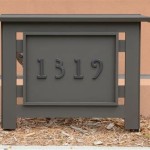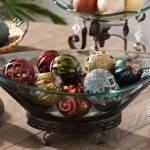Tile Flooring: A Comprehensive Guide from Floor & Decor
Tile flooring represents a versatile and durable option for a wide range of residential and commercial applications. Its inherent resistance to moisture, coupled with its aesthetic flexibility and ease of maintenance, positions it as a popular choice for homeowners and contractors alike. Floor & Decor, as a leading retailer of flooring and related products, offers an extensive selection of tile options, catering to diverse design preferences and functional requirements.
Understanding the various types of tile, their respective characteristics, and the considerations for installation and maintenance is crucial for making informed decisions. This article provides a detailed overview of tile flooring, focusing on the offerings available at Floor & Decor, and equipping the reader with the knowledge necessary to select the most suitable tile for their specific needs.
Types of Tile Flooring Available at Floor & Decor
Floor & Decor features a comprehensive catalog of tile flooring, encompassing various materials, styles, and performance characteristics. The selection typically includes, but is not limited to, the following primary types:
Ceramic Tile: Ceramic tile is perhaps the most common type of tile flooring. It is manufactured from clay that is fired at high temperatures, resulting in a hard, durable surface. Ceramic tile is known for its affordability, versatility, and resistance to stains and scratches. It is available in a vast array of colors, patterns, and sizes, making it suitable for virtually any design aesthetic. At Floor & Decor, ceramic tile options range from basic, budget-friendly selections to more decorative and intricately designed varieties.
The composition of ceramic tile often includes varying amounts of clay, silica, and other materials. The glaze, or top layer, determines the tile's finish, ranging from matte to high-gloss. The porosity of ceramic tile can vary, influencing its water resistance. Glazed ceramic tile generally offers superior water resistance compared to unglazed tile, making it suitable for bathrooms and kitchens. Floor & Decor typically categorizes ceramic tile based on its PEI (Porcelain Enamel Institute) rating, which indicates its abrasion resistance. A higher PEI rating signifies greater durability and suitability for high-traffic areas.
Porcelain Tile: Porcelain tile is a denser and more durable type of ceramic tile. It is manufactured from a finer clay and fired at even higher temperatures than standard ceramic tile. This process results in a tile that is less porous, more resistant to water absorption, and stronger overall. Porcelain tile is an excellent choice for high-traffic areas and outdoor applications, as it can withstand freezing temperatures and repeated exposure to moisture. Floor & Decor offers a wide range of porcelain tile options, including those designed to mimic the look of natural stone, wood, and concrete.
The key characteristic of porcelain tile is its low water absorption rate, typically less than 0.5%. This makes it exceptionally resistant to staining and damage from moisture. Porcelain tile is also known for its through-body construction, meaning that the color and pattern extend throughout the entire tile, rather than just being applied as a surface layer. This characteristic makes scratches and chips less noticeable. Floor & Decor provides detailed technical specifications for each porcelain tile product, including its water absorption rate, breaking strength, and slip resistance, allowing customers to make informed decisions based on their specific needs.
Stone Tile: Stone tile encompasses a variety of natural materials, including granite, marble, slate, travertine, and limestone. Each type of stone possesses unique characteristics in terms of appearance, durability, and maintenance requirements. Stone tile offers a luxurious and timeless aesthetic, adding a touch of elegance and sophistication to any space. Floor & Decor carries a curated selection of stone tile, sourced from around the world, offering a diverse range of colors, textures, and patterns.
Granite is known for its exceptional hardness and durability, making it an ideal choice for high-traffic areas and countertops. Marble is prized for its veining and polished surface, adding a sense of luxury and sophistication. Slate offers a more rustic and textured appearance, with natural variations in color and pattern. Travertine is characterized by its porous surface and earthy tones, creating a warm and inviting atmosphere. Limestone is a softer stone with a subtle texture, often used in more casual settings. Floor & Decor provides guidance on the proper sealing and maintenance procedures for each type of stone tile, ensuring its longevity and beauty.
Glass Tile: Glass tile is a popular choice for backsplashes, accent walls, and decorative accents. It offers a unique aesthetic, with its reflective surface and vibrant colors. Glass tile is non-porous and easy to clean, making it a practical choice for kitchens and bathrooms. Floor & Decor offers a variety of glass tile options, including mosaic tiles, subway tiles, and large-format tiles, in a wide range of colors and finishes.
The durability of glass tile depends on the type of glass used and the manufacturing process. Tempered glass tile is more resistant to impact and breakage than standard glass tile. The installation of glass tile requires specialized adhesives and techniques to ensure proper adhesion and prevent moisture penetration. Floor & Decor offers a selection of setting materials and tools specifically designed for glass tile installation.
Other Tile Options: In addition to the above, Floor & Decor may also offer other tile options such as metal tile, concrete tile, and quarry tile. Each of these options possesses unique characteristics and applications. Metal tile adds a contemporary and industrial touch to a space. Concrete tile offers a durable and versatile option for both indoor and outdoor applications. Quarry tile is a dense and durable type of ceramic tile, often used in commercial kitchens and industrial settings.
Key Considerations for Selecting Tile Flooring from Floor & Decor
Choosing the right tile flooring requires careful consideration of several factors, including the intended use of the space, the desired aesthetic, the budget, and the maintenance requirements. Floor & Decor offers a variety of resources and tools to assist customers in making informed decisions. These resources may include online product catalogs, in-store displays, design consultations, and installation guides.
Intended Use and Traffic Level: The intended use of the space is a primary factor in determining the appropriate type of tile. High-traffic areas, such as hallways and entryways, require durable and abrasion-resistant tile, such as porcelain or granite. Bathrooms and kitchens require tile that is resistant to moisture and staining, such as glazed ceramic or porcelain. Areas that are exposed to freezing temperatures or harsh weather conditions require tile that is specifically designed for outdoor use. Floor & Decor typically provides information on the recommended applications for each tile product.
Aesthetic Preferences and Design Style: Tile flooring offers a wide range of aesthetic possibilities, from traditional to contemporary, from minimalist to ornate. The color, pattern, size, and finish of the tile can significantly impact the overall look and feel of a space. Floor & Decor offers a diverse selection of tile styles to suit various design preferences. Customers can browse online catalogs, visit in-store displays, or consult with design professionals to explore different options and visualize how they will look in their space.
Budget and Installation Costs: The cost of tile flooring can vary significantly depending on the type of tile, the size of the installation area, and the complexity of the installation. Natural stone tile tends to be more expensive than ceramic or porcelain tile. Intricate patterns and designs may require more labor and increase installation costs. Floor & Decor offers a range of tile options to suit different budgets. Customers should obtain accurate quotes from qualified installers before making a final decision. Installation costs can vary greatly depending on the location, contractor, and complexity of the project.
Maintenance Requirements: All tile flooring requires some level of maintenance to keep it looking its best. However, the specific maintenance requirements vary depending on the type of tile. Glazed ceramic and porcelain tile are relatively easy to clean and maintain, requiring only regular sweeping and mopping. Natural stone tile may require periodic sealing to protect it from staining and moisture damage. Floor & Decor provides guidance on the proper cleaning and maintenance procedures for each type of tile.
Installation and Maintenance of Tile Flooring
Proper installation and maintenance are crucial for ensuring the longevity and performance of tile flooring. While some homeowners may choose to undertake DIY installation, professional installation is generally recommended, particularly for complex projects or natural stone tile. Floor & Decor offers resources and tools to assist with both DIY and professional installation.
Installation Process: Tile installation typically involves several steps, including preparing the subfloor, applying mortar, setting the tile, grouting, and sealing. The subfloor must be clean, level, and structurally sound to ensure proper adhesion of the tile. Mortar is used to bond the tile to the subfloor. The type of mortar used depends on the type of tile and the substrate. Grout fills the spaces between the tiles, providing a waterproof seal and enhancing the overall appearance. Sealer is applied to the grout to protect it from staining and moisture damage. Floor & Decor offers a wide range of setting materials, tools, and sealers to ensure a successful tile installation.
Cleaning and Maintenance: Regular cleaning and maintenance are essential for preserving the appearance and extending the life of tile flooring. Routine sweeping and mopping will remove dirt and debris. Use a neutral pH cleaner specifically designed for tile flooring. Avoid using abrasive cleaners, which can damage the surface of the tile. For natural stone tile, use a cleaner specifically formulated for stone. Spills should be cleaned immediately to prevent staining. Periodically inspect the grout for cracks or damage and repair as needed. Re-sealing the grout every few years will help to prevent staining and moisture damage.
Addressing Common Issues: Several common issues can arise with tile flooring, including cracked tiles, loose tiles, and stained grout. Cracked tiles may be caused by impact damage, improper installation, or settling of the subfloor. Loose tiles may be caused by poor adhesion or moisture damage. Stained grout can be caused by spills, dirt, or mildew. Floor & Decor may offer solutions for addressing these issues, such as replacement tiles, repair kits, and grout cleaners.
Floor & Decor strives to provide customers with a comprehensive selection of tile flooring options, along with the resources and expertise needed to make informed decisions and achieve successful installations. By understanding the different types of tile, considering the key factors for selection, and following proper installation and maintenance procedures, homeowners and contractors can enjoy the beauty and durability of tile flooring for years to come.
Wood Tile Flooring Floor Decor
Tile Flooring Wall Tiles Floor Decor
Porcelain Tile For Floors More Floor Decor
Tile Flooring Wall Tiles Floor Decor
Porcelain Tile For Floors More Floor Decor

Concrete Gray Ceramic Tile Floor And Decor
Wood Tile Flooring Floor Decor

Floor And Decor Review Remodel Options

Floor Decor A Ping Guide Review

Floor Decor An Amazing Tour Sand And Sisal








